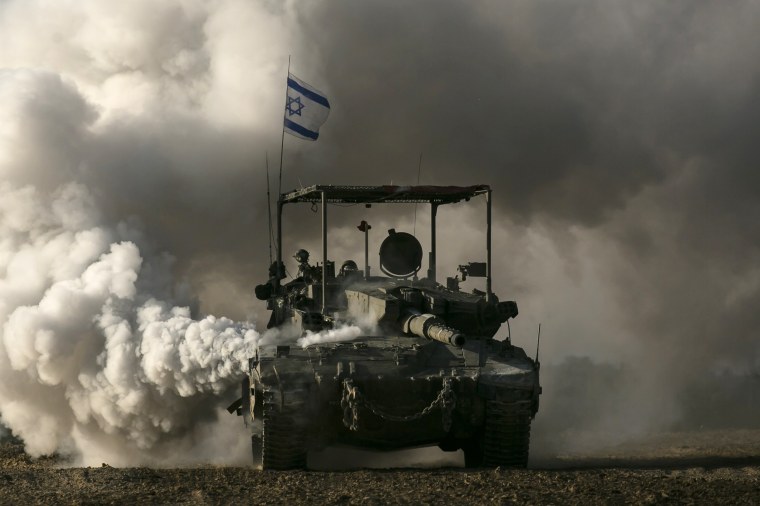What the ICJ genocide ruling means for Israel and its Gaza war
What it all means
Trita Parsi, executive vice president for the Quincy Institute for Responsible Statecraft, a Washington-based think tank, called it “a devastating blow to Israel’s global standing.”
Although a final decision is still years off, “Israel will now be similarly associated with the charge of genocide,” Parsi added. “As a result, those countries that have supported Israel and its military campaign in Gaza, such as the U.S. under President Biden, will be associated with that charge, too.”
Other experts did see some positives for Israel.
“I think it’s notable that the court did not call for an immediate cease-fire, which was something that South Africa was seeking,” said David J. Simon, director of the genocide studies program at Yale University. “Implicitly, the court recognized Israel’s invocation of their right to self-defense.”
Both sides have claimed some semblance of victory — although Israel has kept up its vehement rejection of the entire process.
Prime Minister Benjamin Netanyahu said the accusation of genocide was not only “false, it’s outrageous, and decent people everywhere should reject it.” However he praised the ICJ, which he said had “justly rejected” the “vile attempt” to deny his country’s right to defend itself.
Israel’s defense minister vowed that its campaign — launched after Hamas’ Oct. 7 attacks, which saw some 1,200 people killed and another 240 taken captive — would continue and that it “does not need to be lectured on morality in order to distinguish between terrorists and the civilian population in Gaza.” Itamar Ben-Gvir, one of the most right-wing ministers in Netanyahu’s coalition government, posted a two word response on X: “Hague Shmague.”
Hamas is not a country and therefore not party to the ICJ or the Genocide Convention. However the International Criminal Court, a separate body, says it is investigating the militant group’s widely condemned assault.
Though the focus of the case was the war in Gaza, Donoghue said the court was “gravely concerned about the fate of the hostages” still being held in Gaza “and calls for their immediate and unconditional release.”

Palestinian Foreign Minister Riyad al-Maliki commended the panel of 17 judges, saying they “assessed the facts and the law” and “ruled in favor of humanity and international law.”
Likewise, South Africa’s government called it a “decisive victory for the international rule of law, and a significant milestone in the search for justice for the Palestinian people.” In Iran, a longtime adversary of Israel and an alleged human rights abuser itself, Foreign Minister Hossein Amirabdollahian congratulated South Africa’s “success” in a post on the X platform and called for top Israeli officials to face justice.
In reality, the nuance in the court’s ruling allows scope for grievance on both sides, according to Eliav Lieblich, an international law professor at Tel Aviv University.
“Israel would probably criticize this decision as having not engaged enough with its attempts to contextualize the harm in Gaza as part of an intense armed conflict with Hamas,” he said, “While South Africa might not be satisfied with the fact that, at the end of the day, the court did not deliver the most far reaching measure it requested — an immediate cease-fire.”
This is only the first legal skirmish in a wider clash that will likely take years. And although South Africa and Palestinian supporters may have some cause for celebration now, their victory overall still looks a tall ask, according to Hovell at the LSE and other experts.
“Genocide will be very difficult to prove on the merits of the case,” she said. “The bar is very high and rarely met.”
Read More: What the ICJ genocide ruling means for Israel and its Gaza war


